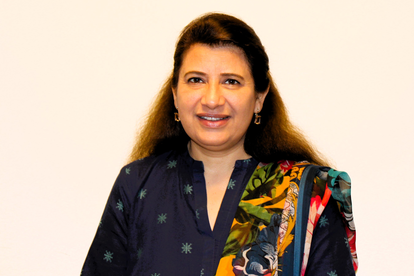A conference planned for about 250 participants attracted over five hundred participants from several universities! The jubilation on the faces of students was worth seeing. The parallel sessions were full with half of the participants standing and keenly listening to the speakers. The heads of 35 different university departments, 20 public institutions (including environment, agriculture, forestry, water, planning, policy development and so on) and representatives from 15 national and international NGOs participated in the conference. What were they talking about?
Pakistan faces critical challenges as a result of climate change. It is one of the ten countries in the world most affected by the effects of climate change. Pakistan’s exposure to climate risks is exacerbated by the fact that Pakistan is largely rural and most of the economy is based on agriculture which is very sensitive to climate change. Also, Pakistan has limited local capacity to deal with climate risks, which enhances the negative effects of climate change on people’s livelihoods.
Recognizing these challenges, a Climate Change Centre (CCC) has been established by Helvetas Pakistan at the University of Agriculture Peshawar (UAP) in 2013. The core purpose of the Centre is to mainstream climate change adaption in agriculture sector research, coordinate research from farmer’s perspective and provide essential knowledge to all the interested partners including agriculture staff in the field and the farmers. The Centre emerged from an ongoing dialogue among stakeholders since floods 2010 that there was no such facility in the province which could serve as a knowledge hub on the subject of adaptation to climate change and to provide services to agriculture specialists, academia, development actors and farmers on how to ensure resilience to new challenges and learn to live with the climate changes which are inevitable.
Establishing new institutions, and that too in the arena of public sector in Pakistan, is not an easy task! In case of climate change adaptation dealing with water and agriculture there was no way but to start from scratch with a university which already had resources in terms of multiple and relevant faculties as well as thousands of students. During three years of this process, we saw several phases of encouragements, disappointments, motivation and spurs. But finally everyone started to believe that this was necessary to form the basis of a concrete action for adaptation for the farming communities who are at a receiving end of climate change impact and institutions usually do not reach out to them with solutions to their problems.
Striving hard for stakeholders’ sensitization and building resilience of farming communities to extreme climates and disasters, The Climate Change Centre, UAP and Intercooperation Pakistan, with financial support from partners (SDC, WWF, Lead Pakistan, Building Back Better – Swiss Solidary) jointly organized a Three-Days National Conference On “Thinking Climate Change Adaptation in Water and Farming” (Think – Adapt 2016) during November 28-30, 2016 at the University of Agriculture Peshawar.
The main objectives of the “THINK – ADAPT” conference were to highlight the importance of climate change adaptation in water management and farming systems. The conference provided an opportunity to researchers, faculties, students, practitioners, policy makers and other stakeholders to share knowledge and experiences on climate change impacts on water resources, farming system, demographics, food security, nutrition and health. This was the first ever conference on the subject in Peshawar, KP in Pakistan. Normally such events are common in metropolis such as Islamabad with more or less the same participants over and over again. Islamabad is also preferred to attract donors’ attention. For the students and many faculty members in Khyber Pakhtunkhwa (KP) and Federally Administered Tribal Areas (FATA) adjoining Afghanistan, this was the first opportunity to participate in such discussions. The event indeed brought students and teachers, universities and practitioners and policy makers close to each other on the subject of climate resilience.
A former Federal Minister and Senator, Mr. Nisar A. Memon, reminded the audience that although Pakistan was among those countries which had negligible contribution to global greenhouse gas emissions it was among the most affected and vulnerable to climate change impacts, particularly on water. He said water is an emerging security issue for nations. Water and climate change issues need serious political consideration and dialogue as local solutions alone cannot solve the scale of this growing problem.
The Chief Minister Government of Khyber Pakhtunkhwa feared that the shrinking sources of water, rampant deforestation and pollution pose a threat to the future generation. He said “Climate change has become the peoples’ problem and the universities and institutes should raise awareness among masses about the negative effects of the climate change”. He insisted on action oriented research and asked the academia and researchers to extend their findings to the end users i.e. the farming community. He hoped that academia and research centers would guide policy makers to cope with the challenges and harness the opportunities created by changing climate.
All the participants appreciated the efforts of CCC UAP and Intercooperation and many experts offered their full support to the Center. This event is a milestone in the history of university and will provide a good boost the Center’s activities in future. For Intercooperation too this will serve as a good reference on climate change.
(Helvetas staff members Arjumand Nizami and Jawad Ali supported Climate Change Center to organize “THINK-ADAPT” Conference at the University of Agriculture Peshawar, in Pakistan, which took place during November 28-30, 2016. Jawad Ali was a founding director of the Center and now a Senior Advisor to the Center’s director appointed by University)


